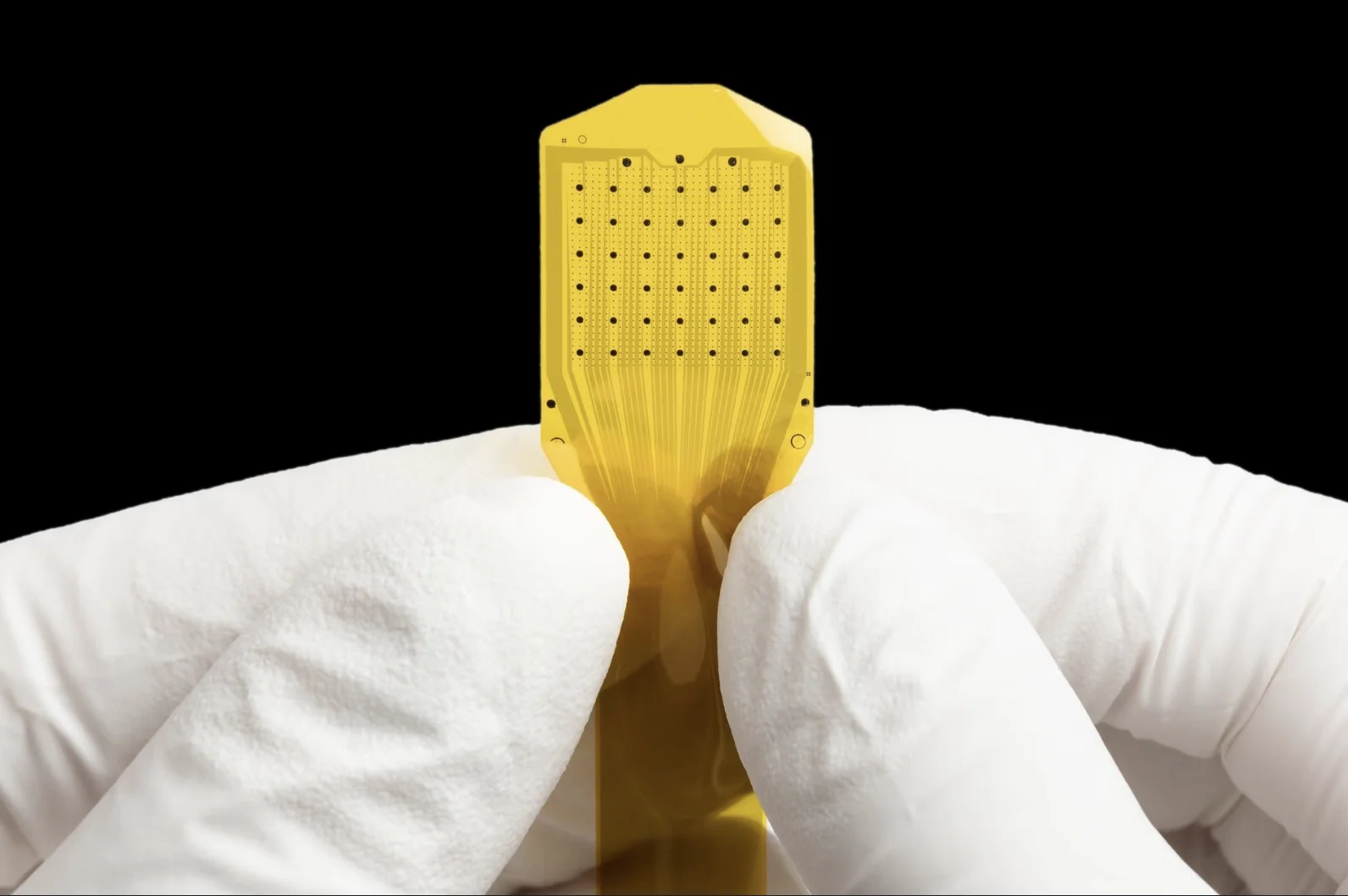Drop off your CV/Resume
We'd love to hear from you. Send us your CV/Resume and one of our team will be in touch.

Neurotechnology is a fascinating field that aims to unlock and decipher the complexities of the brain. Although the first EEG (electroencephalogram) recording took place a century ago, neurotechnological breakthroughs are beginning to rapidly emerge thanks to the development of artificial intelligence and machine learning algorithms.
Most recently, the field of brain-computer interfaces (BCIs) has made significant progress. Designed to restore or improve physical function in people with neuromuscular disorders, these devices receive and analyze brain signals which are translated and broadcasted to an output appliance which proceeds to carry out actions. They can be invasive and applied via surgical implantation or may function with non-invasive skull caps that work using external sensors.
One company that had a recent FDA win for their newly developed brain implant is Precision Neuroscience. At the forefront of the BCI space, they are working to create the ‘world’s highest resolution of human thought’ through a powerful implant that conforms to the surface of the brain without inflicting any damage.
This next-generation wireless BCI is the first of its kind to receive FDA clearance, putting the company first in the race – with competitors including Elon Musks’ Neuralink and Synchron.
Precision was founded in 2021 by neurosurgeon and engineer Ben Rapoport and business builder Michael Mager. The pair set out to achieve a dream of developing and widely using BCIs in the healthcare world.
In particular, they had an idea for something that had never been developed before: a technological connection to the brain that does not rely on penetrating electrodes and therefore does not incur any damage to the brain. With this life-changing technology, they could help improve the lives of millions of people.
The company has hit several milestones since its founding – and most impressively, they made their dream a reality in just four years.
Precision’s leading product is known as the Layer 7 Cortical Interface. It’s a thin film microelectrode array that’s fully implantable and engineered to conform to the surface of the brain where it collects data without damaging brain tissue.

It works by detecting the brain’s signals and sending them to a processing unit that is inserted between the skull and scalp. From here the information is relayed to an external device which in turn translates thoughts directly into actions. This could look like moving a prosthetic limb or a cursor on a computer screen.
While this sounds closer to science fiction, in reality it’s already being applied to patients! The device can also be worn for up to 30 consecutive days and is inserted with a simple, quick procedure that is designed to be reversible.
In April of this year, the FDA approved Precision’s BCI device – which is already beginning to positively change people’s lives. Before long, the company hopes that people suffering from severe neurological conditions, like speech deficits and paralysis, will be able to regain independence, rejoin the workforce and communicate with friends and family.
The human clinical trials began in June 2023 and were conducted on 37 participants. The BCI device was placed on the brain temporarily, while surgeons were performing necessary procedures such as tumor removals.
Following on from this, Precision gained FDA clearance for the device to be implanted for up to 30 days at a time.
According to Fierce Biotech, CEO Michael Mager stated that: “In just four years since our founding, we've gone from an idea to achieving FDA clearance for our cutting-edge cortical array, which we manufacture in a facility that we own and operate. [...] This clearance represents a big step forward toward our goal of delivering life-changing brain–computer interface technology to the millions of people.”
For Precision, the future looks extremely bright.
The development and approval of Precision’s product is a huge milestone in the neurotechnology and BCI spaces. Thanks to this microelectrode array it is now possible to record and analyze brain activity in patients with just one minor incision and no resulting brain damage, which is tremendously impressive.
And it isn’t just revolutionizing neurological diagnostics – it’s transforming lives. By inserting the cortical array into the brains of paralyzed patients, their thoughts can be picked up, translated and communicated with others.
For the many millions of people suffering globally from neurological illnesses, there is newfound hope that this technology will massively improve the quality of their lives.
Meet takes pride in helping life sciences organizations build teams that contribute to life-changing medicines and medical devices. From clinical stage scale-ups to well-established companies, we help to place the people that create trial wins and exciting advancements that improve global health outcomes.
If you’re in the neurotechnology space and looking to expand an important team or take the next pivotal step in your career journey, please reach out to us today.